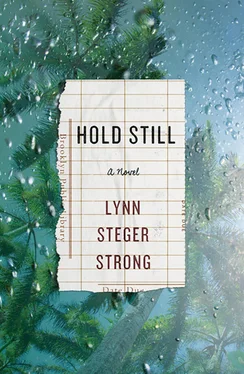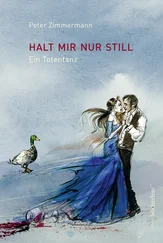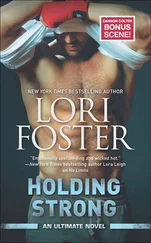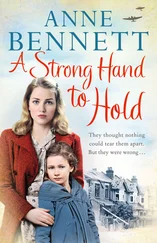“Fyodor,” said Stephen. “Dostoyevsky. He’d love you out here, suffering for your work.” He said the last bit in a deeper voice than he’d said the first, scowling, then raising the corners of his lips.
Maya laughed at him, and shrugged. “I love him,” she said. She hadn’t meant to sound as emphatic as she did.
“Well, he’d love you too, on sight,” said Stephen. “The bluster of you.”
“Bluster?” said Maya. “Are you British?”
Stephen laughed. “Just stuck up.”
He was a scholar of Nietzsche, all the Germans, political philosophy. He stood up very straight and once he smiled he looked much younger than he was. She felt her body leaning toward him. She smiled back at him, and when he asked her out for drinks she said yes and it felt good.
They had drinks and dinner. They had breakfast. Two weeks passed and then a month. He read the final draft of her dissertation over a single weekend. She made him stay at his apartment and she at hers while he read. “So serious,” he said when she decreed this. And she could tell, and she was grateful: he appreciated gravity.
They met for breakfast that Monday morning. He hadn’t slept, she thought. It was the first time she’d seen him with stubble and wanted to touch it, to ask him to run it slowly, a little forcefully, down her length. They were at a diner on Waverly near his apartment. They both lived downtown, separate from school. She was half an hour early, but Stephen was already there. He had his hands, one on top of the other, set atop the stack of now-worn white paper. His back was tall against the booth. The whole time he spoke she was incapable of holding still. She’d ordered water, orange juice, and coffee and kept fingering one glass and then the mug and then the other glass, sipping, cupping, lining rims.
It was better than him loving it. He had notes for her and more in the margins. They sat for hours with their half-filled plates and endless cups of coffee. He talked and talked and she thought yes.
“I love you,” she said when they were done and back at her apartment. When they had discussed it all and she’d called her advisor and asked for one more month. After she’d led him to the shower, both of them drained and greasy from the diner — he’d had her up against the grimy black-and-white tiles, his hand cupping her left thigh, her right leg held up by the tips of her toes, almost slipping, grabbing tight to the shower rod.
There were water spots on Maya’s pillows from their still-wet hair. She ran her hands along the dry and then the wet. It was the first time she’d said “I love you” to him, to anyone besides her dad. He laughed.
“I wonder if you don’t just love my notes,” he said.
They read out loud to one another things that they were working on, passages they hadn’t quite made sense of yet. He liked to garden, would spend hours outside in ratty shorts and moccasins, looking exactly like the privileged boy from Collegiate that he’d always been. And sometimes he would yell things, stinging low-slung vitriol that he would later say he didn’t mean, but that hung over them and threatened, long after the hurt had been repaired.
He traveled often and missed birthdays, holidays, trips to Florida that he would lament afterward, but when he left again he often seemed relieved. He took her out to the Cape to spend weekends with his parents — they’d relocated permanently once Stephen started grad school. His mother spent her days walking along the water every morning no matter the weather, cultivating a modest art collection that she didn’t seem to have much interest in once the work had been acquired. His father spent his days reading, the newspaper in the morning, large nonfiction in the afternoons, then quizzing Stephen, Maya, and his wife over dinner about topics so obscure that he was almost certain to be the only one of the four of them to have the answers to.
They doted on her, loved her. She was smarter, they said, than Stephen’s usual choices. They were wealthy liberal intellectuals, she was the exact sort of uncertain background, innate brilliance, acceptable attractive that they would have chosen for their son. Maya walked the water with his mother in the mornings and discussed de Kooning, Balthus, Rothko, Dubuffet, the colors of the Dutch. She knew hardly anything about visual art, but she was a quick study and paid close attention. She spent some of the afternoons she wasn’t teaching at the MoMA, Met, Frick or Guggenheim, cultivating enough of an opinion to have more of her own ideas to offer on these walks.
As much as Maya loved and admired them, there was something constantly off-putting about the ease with which her in-laws existed in the world. They’d both come from a long line of money, perfectly educated, consistently loved. They, like Stephen, seemed to feel as if they had a right to all the pleasures they’d been given, while Maya sat most days waiting to be punished for all that she had somehow managed to acquire. Sometimes it scared her how much Stephen trusted the world. But mostly, especially early, she found it astonishing, lovely, in the way that one can see something from far away and appreciate its beauty, but never quite make sense of what it is.
“Why do you think you picked me?” he says to her. He’s finished his sandwich. His plate sits bare in front of him and he reaches again for one of Maya’s fries.
“You make it sound like you had no say,” she says.
“Please,” he says. “I was old already. I was a curmudgeon.”
She eats two french fries dry, swallowing slowly. She hasn’t eaten in days, it seems, weeks. “You were thirty-four,” she says.
A smear of ketchup lingers on the left side of his lip.
“I loved you,” Maya says.
“But why?”
“Jesus, Stephen.”
She picks a napkin up to wipe his lip for him, then hands it off for him to wipe instead.
“I loved your brain,” she says.
This is the answer he expected. She wonders how to make it something else. How to maybe give him something more.
“Your humor?” she says.
He laughs. “But I’m not funny.”
She laughs too. “You made me laugh,” she says.
“Everybody says that.”
She smiles at him. “No one says that about you.”
And he laughs then in the exact way that is maybe more than any other reason why she loves him: like he’s ten years old and doesn’t care who’s watching, loudly. His large body unfurls. His head tilts back.
It’s the sheer dissonance between this and every other aspect of the man she married that is the most charming. It still surprises her when he laughs, when he is dry, quiet, and biting, usually at his own expense. And she’s so very grateful to him for this; she’s more than grateful — these moments have always made her think there could be more surprise to come. Surprise for both of them, in what they might give to one another, in all, together, they might be capable of.
He waits for more.
“I thought. . I think I thought the way you trusted the world. I wanted to be as certain as you were.”
He laughs again. “Now you know better,” he says.
Ten years before: “Christ, Maya!”
“If you use the word reputation I’ll jump out of the car.” There had been a party for the faculty in Stephen’s department. He was angling for department chair.
He stared at her. He had only one hand on the wheel.
“Look at the road,” she said.
He fiddled with his glasses, loosened up his tie. “It was two hours. Two hours when you could have just smiled and nodded and played the game a little bit.”
“ The game , Stephen? Seriously?” She had her foot up on her knee and was slowly peeling off her shoes.
Читать дальше












